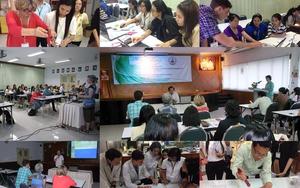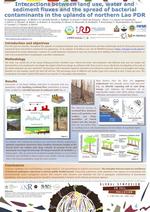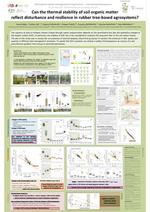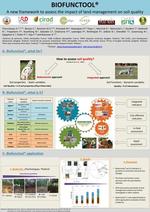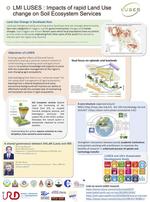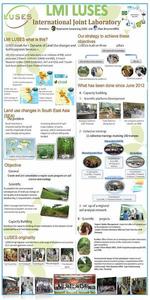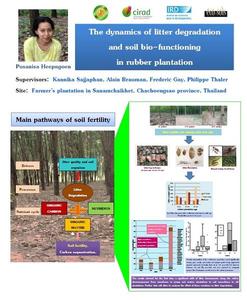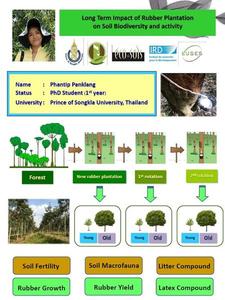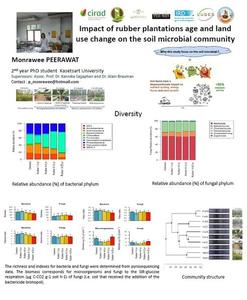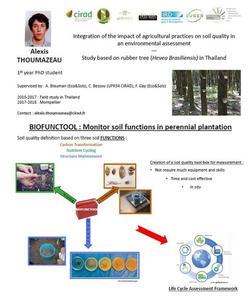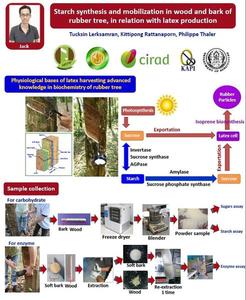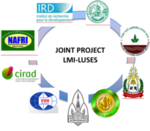Microresp training
Download Report of Microresp Training
-----------------------------------------------------------------------------------------------------------------------------------
Date : 2st to the 4th of April 2014
Participants : 18
10 from LDD, 2 from KKU, 3 from KU, 2 from Nuol (Laos) , 1 from SFRI (Vietnam)
Trainers:
- Tiphaine Chevallier: Senior soil scientist, IRD, UMR ECO&SOLS, France
- Josiane Abadie: technical assistant, INRA, UMR ECO&SOLS, France
- Pascal Alonso: TICA temporal expert, in charge of the microbial lab. IRD, posted at LDD
- Monrawee Peerawat: LDD soil scientist, Biotechnology Dept.
Localization : LMI-LDD platform of microbiology
Funded by :
LMI LUSES, UMR ECO&SOLS, French Rubber association, LDD Biotechnology Dept.
Cost of the training :
6000 ‚ā¨ (~265000 bath)
Context of this training
The LMI LUSES and its LDD Partnershas developed since 2012 acommon platform of microbiology within the Biotechnology department of LDD. The aim of this laboratory is to characterizethe soil microbial compartment of the soil subject to different perturbations (land uses, farmers practices, organic matter management such as biochar etc..). Why this focus on soil microrganisms, because, there are more microbes in a teaspoon of soilthan there are people on the earth. Soilscontain about 8 to 15 tons of bacteria, fungi, protozoa, nematodes, earthworms, and arthropods. They (microorganisms) are the main driver of the nutrient cycling (90%) their characterization is thus critical to better assess the soil functioning. This platform will allow to determine what kind of agricultural practices or organic matter management are more sustainable for the farmer. However, most of the measurements today are related to the characterization of the molecular diversity of microorganisms. But if it’s important to determine who is there? (diversity), its even more essential to understand what do they do (metabolic activities)? This will be the aim of this training
LMI LUSES Posters
Presentation of the ECOFILTER Team at the Global Symposium on Soil Pollution (GSOP18), FAO, Rome, 2-4 May 2018
Poster of the BIODIV TREE team presented at the SOM management conference held in Braunsweig on the 30 and 31 of May
Poster of the BIODIV TREE team presented at the SOM management conference held in Braunsweig on the 30 and 31 of May
Synopsis of LUSES 2017-2019
- LDD-IRD a long history of scientific cooperation
- Impact of Rubber Tree Plantation on Soil Biological Diversity
- LDD-LMI LUSES Platform of Microbiology
- LMI LUSES presentation
- PCR LDD-LMI LUSES Platform
- Laboratory guide: hygiene and safety in English
- Laboratory guide: hygiene and safety in Thai
PhDs students' scientific posters
The dynamics of litter degradation and Soil-bio functioning in Rubber plantation : Pusanisa Heepngoen
Long term impact of Rubber Plantation on Soil biodiversity and Activity: Phantip Panklang
Impact of Rubber Plantation age and Land use change on the soil microbial community : Monrawee
Integration of the impact of agricultural practices on soil quality in an environmental assessment : Alexis
Starch Synthesis and Mobilization in wood and bark of rubber tree, in relation with Latex production : Tuksin




